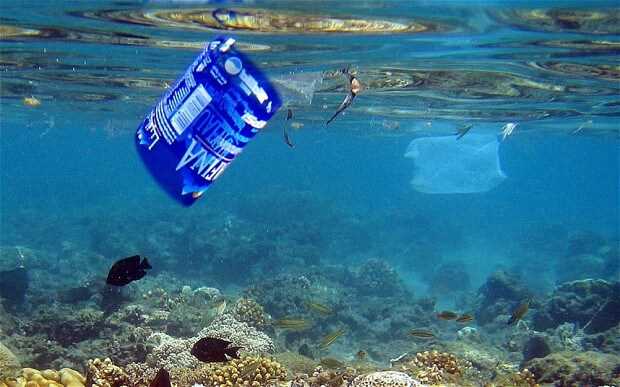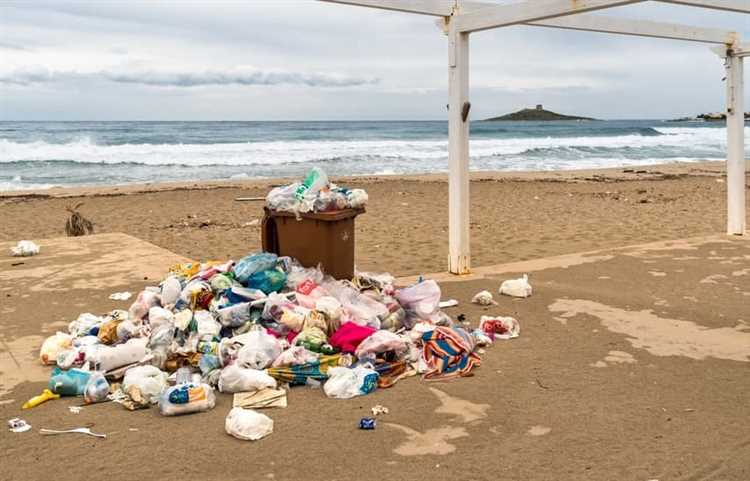
Plastic pollution has become a global environmental crisis, and Italy has taken a significant step towards addressing this issue by prohibiting the use of plastic bags. The ban, which came into effect in January 2011, has had a remarkable impact on reducing plastic waste and promoting sustainable alternatives.
Italy’s decision to ban plastic bags was driven by several key factors. First and foremost, plastic bags are notorious for their long-lasting impact on the environment. They take hundreds of years to decompose, polluting landfills and water bodies in the process. This has detrimental effects on both terrestrial and marine ecosystems, threatening the health of plants, animals, and humans alike.
In addition, Italy’s ban was motivated by the need to conserve energy and reduce greenhouse gas emissions. The production of plastic bags requires significant amounts of energy and resources, contributing to carbon dioxide emissions and climate change. By banning plastic bags, Italy has taken a strong stance in favor of sustainability and environmental responsibility.
Furthermore, the ban has had positive social and economic impacts on Italy. It has encouraged the use of reusable bags, such as cotton or jute bags, which are more durable and environmentally friendly. This shift in consumer behavior has created new business opportunities for local manufacturers, promoting economic growth and job creation.
Italy’s ban on plastic bags serves as an important example for other countries to follow. It demonstrates that with political will and public support, it is possible to combat plastic pollution and foster a more sustainable future. By eliminating plastic bags from daily use, Italy is paving the way for a cleaner and healthier planet for generations to come.
- Environmental Impact of Plastic Bags
- 1. Pollution
- 2. Wildlife Impact
- 3. Resource Depletion
- Italy’s Battle Against Plastic Pollution
- Plastic Bag Ban Implementation
- Positive Effects of the Plastic Bag Ban in Italy
- Challenges Encountered During the Transition
- Resistance from Consumers
- Implementation and Enforcement
- Availability and Cost of Alternatives
- Lessons Learned from Italy’s Plastic Bag Ban
- Questions and answers:
- Why did Italy ban plastic bags?
- When did Italy prohibit plastic bags?
- What are the alternatives to plastic bags in Italy?
- Did the ban on plastic bags have a positive impact in Italy?
- Are there any penalties for using plastic bags in Italy?
- What is the reason behind Italy’s decision to prohibit plastic bags?
- Does the ban on plastic bags apply to all types of bags in Italy?
Environmental Impact of Plastic Bags

Plastic bags have become a major environmental issue globally due to their negative impact on the environment. These bags are made from non-renewable resources such as petroleum and natural gas, and their production and disposal have serious consequences.
1. Pollution
Plastic bags are a significant source of pollution in both land and marine environments. Improper disposal of these bags can result in littering, where they can end up in rivers, lakes, and oceans, posing a threat to aquatic life. Additionally, when plastic bags break down, they release tiny particles called microplastics, which enter the ecosystem and have toxic effects on animals and plants.
2. Wildlife Impact
The presence of plastic bags in nature has a detrimental impact on wildlife. Marine animals, such as turtles and seabirds, often mistake plastic bags for food and ingest them. This can lead to internal injuries, starvation, and even death. Moreover, when animals become entangled in plastic bags, they face the risk of injury or suffocation.
3. Resource Depletion
The production of plastic bags requires large amounts of non-renewable resources, including fossil fuels. As these resources are depleted, the extraction and processing of new resources contribute to air and water pollution, as well as greenhouse gas emissions. By reducing the consumption of plastic bags, we can help conserve these valuable resources.
To address these environmental issues, countries like Italy have recognized the need to ban or limit the use of plastic bags. By transitioning to alternative, more sustainable options like reusable bags, we can reduce the environmental impact caused by plastic bags and work towards a cleaner and healthier planet.
Italy’s Battle Against Plastic Pollution
Italy has been at the forefront of the fight against plastic pollution, implementing numerous measures to reduce the use of plastic and promote more sustainable alternatives. Plastic bags, in particular, have been a major target.
One of the most significant steps taken by Italy was the prohibition of lightweight plastic bags. In 2011, the government introduced legislation that banned the distribution of any plastic bags that were not compostable or biodegradable. This move was aimed at reducing the environmental impact of plastic bags, which often end up in rivers, oceans, and landfills, contributing to pollution and harming wildlife.
The ban on plastic bags had a noticeable effect on consumer behavior in Italy. People began to adopt reusable bags made from materials such as cotton or jute, helping to reduce the demand for single-use plastic bags. Retailers also started offering more sustainable alternatives, such as paper bags or reusable fabric bags, encouraging customers to make the switch.
In addition to the ban on plastic bags, Italy has also implemented measures targeting other single-use plastics. In 2019, the country introduced a nationwide ban on a range of single-use plastic items, including straws, cotton buds, and plates. This further contributed to the reduction of plastic waste and encouraged the use of more eco-friendly alternatives.
Italy’s battle against plastic pollution has not been without challenges. The transition away from plastic has required significant changes in production and consumption habits. However, the efforts made by the country have proven to be successful in reducing plastic waste and promoting a more sustainable future.
By implementing comprehensive legislation and promoting alternative options, Italy has set an example for other countries in the fight against plastic pollution. The success of these initiatives highlights the importance of taking decisive actions to protect the environment and preserve natural resources for future generations.
Plastic Bag Ban Implementation
The implementation of the plastic bag ban in Italy was a significant step towards reducing plastic waste and promoting environmental conservation. The ban took effect on January 1, 2011, following the passage of a law in 2010 by the Italian government.
The ban aimed to limit the production, distribution, and use of single-use plastic bags. It required retailers to replace plastic bags with more sustainable alternatives, such as reusable bags or biodegradable alternatives. As a result, consumers were encouraged to bring their own bags when shopping.
The Italian government, in collaboration with environmental organizations, conducted extensive educational campaigns to raise awareness about the ban and educate the public about the negative impact of plastic bags on the environment. These campaigns targeted both consumers and businesses, highlighting the need for change and providing information on alternative solutions.
The ban faced some initial challenges as retailers adjusted to the new regulations and consumers adapted to the changes. However, over time, it became widely accepted and supported by the Italian population. Today, the majority of merchants and consumers have embraced the use of reusable bags, contributing to a significant reduction in plastic bag consumption.
The plastic bag ban in Italy has had several positive effects on the environment. It has reduced the amount of plastic waste, particularly in coastal areas, which are vulnerable to pollution from plastic debris. It has also contributed to the conservation of natural resources, as plastic bags are made from non-renewable fossil fuels.
Furthermore, the ban has stimulated innovation in the development of sustainable packaging alternatives. Italian businesses and entrepreneurs have seized the opportunity to create and market eco-friendly alternatives, such as biodegradable bags made from plant-based materials.
The success of the plastic bag ban in Italy has inspired other countries and regions to implement similar measures. It serves as a role model for environmental policies aimed at reducing plastic waste and fostering a more sustainable future.
Positive Effects of the Plastic Bag Ban in Italy

1. Environmental Benefits: The plastic bag ban in Italy has led to significant environmental benefits. By reducing the use of plastic bags, there has been a decrease in the amount of plastic waste generated, as well as a reduction in pollution and littering. This has had a positive impact on ecosystems and wildlife, as plastic bags can cause harm when they end up in rivers, oceans, and other natural habitats.
2. Resource Conservation: Another positive effect of the plastic bag ban is the conservation of resources. By promoting the use of reusable bags, Italy has reduced its reliance on fossil fuels and petrochemicals that are used in the production of plastic bags. This helps to conserve natural resources and reduce greenhouse gas emissions, contributing to the overall effort to combat climate change.
3. Economic Opportunities: The plastic bag ban has also created economic opportunities in Italy. With the need for alternative packaging solutions, businesses have started to develop and market reusable bags made from eco-friendly materials. This has not only created jobs but has also stimulated innovation and entrepreneurship in the sustainable packaging industry.
4. Public Awareness and Behavior Change: By implementing the plastic bag ban, Italy has raised public awareness about the environmental impact of plastic bags. This has led to a change in people’s behavior and mindset regarding single-use plastics. Citizens are now more conscious of their consumption and are more likely to carry reusable bags when shopping, leading to a long-term reduction in plastic bag use.
5. International Influence: Italy’s decision to ban plastic bags has had a positive international influence. Many other countries and regions have followed suit and implemented their own bans or restrictions on plastic bags. This collective effort to reduce plastic waste has helped to raise awareness globally and create a momentum towards more sustainable practices.
Challenges Encountered During the Transition

Implementing a ban on plastic bags in Italy has presented several challenges during the transition period. While the move has positive environmental implications, there have been obstacles that needed to be addressed.
Resistance from Consumers

One of the main challenges encountered during the transition was the resistance from consumers. Many people were used to the convenience of plastic bags and found it difficult to adjust to alternatives. This resistance was especially evident among older generations who had been accustomed to using plastic bags for decades. Educating consumers about the importance of reducing plastic waste and promoting alternatives such as reusable bags was crucial in overcoming this challenge.
Implementation and Enforcement
Another challenge faced during the transition was the implementation and enforcement of the ban. Ensuring that all retailers were complying with the ban and not providing plastic bags required proper monitoring and enforcement mechanisms. This involved working closely with local authorities and conducting regular inspections to ensure compliance. Additionally, establishing a clear timeline for the phased implementation of the ban helped retailers and consumers to gradually transition to sustainable alternatives.
Availability and Cost of Alternatives
Availability and cost of alternatives posed another challenge during the transition period. While reusable bags and other eco-friendly options were promoted, their availability and affordability varied across different regions in Italy. Some areas had limited access to alternative options, while others had higher prices for eco-friendly alternatives. Addressing this challenge required collaborations with retailers and manufacturers to increase the availability and affordability of sustainable alternatives.
- Educating consumers about the importance of reducing plastic waste and promoting alternatives
- Implementing and enforcing the ban on plastic bags
- Addressing the availability and cost of alternatives
Overall, the transition away from plastic bags in Italy faced challenges related to consumer resistance, implementation and enforcement, as well as availability and cost of alternatives. Despite these challenges, the ban on plastic bags in Italy has been a significant step towards reducing plastic waste and promoting a more sustainable future.
Lessons Learned from Italy’s Plastic Bag Ban
Italy’s decision to prohibit plastic bags has yielded valuable lessons that can be applied to other countries facing the environmental and economic challenges posed by single-use plastic.
1. Public Education and Awareness: Italy prioritized educating the public about the detrimental effects of plastic bags on the environment. Through targeted campaigns and educational programs, the country successfully raised awareness and changed public perception about the need to reduce plastic waste.
2. Support for Alternatives: Italy’s ban on plastic bags encouraged the development and use of alternative materials like reusable bags made from organic materials or recycled fabrics. This approach not only reduced plastic waste but also supported local industries and promoted sustainable practices.
3. Collaboration and Cooperation: Italy’s plastic bag ban was the result of close cooperation between the government, businesses, and civil society organizations. By involving all stakeholders, the ban was implemented smoothly and effectively, ensuring a united front in tackling plastic pollution.
4. Transition Period: Italy provided a transition period for retailers and consumers to adapt to the ban. This allowed businesses to adjust their operations and find alternatives while giving consumers time to get used to bringing their own bags. A well-managed transition ensured a smoother implementation of the plastic bag ban.
5. Monitoring and Enforcement: Italy implemented strict monitoring and enforcement measures to ensure compliance with the plastic bag ban. Regular inspections and penalties for non-compliance were key to its success, as they deterred businesses and individuals from using or providing plastic bags illegally.
6. Positive Economic Impact: Italy’s plastic bag ban has not only helped the environment but also had positive economic effects. The ban created opportunities for the development of innovative materials and products, generating new jobs and supporting the country’s green economy.
In conclusion, Italy’s experience with banning plastic bags offers valuable lessons for other countries seeking to address the plastic waste crisis. Through public education, support for alternatives, collaboration, a transition period, monitoring, and enforcement, and recognizing the economic benefits, countries can successfully reduce the use of plastic bags and promote sustainable practices.
Questions and answers:
Why did Italy ban plastic bags?
Italy banned plastic bags in order to reduce pollution and protect the environment. Plastic bags are very harmful to wildlife and take hundreds of years to decompose.
When did Italy prohibit plastic bags?
Italy prohibited plastic bags in January 2011. The ban was implemented gradually, starting with a partial ban in 2007 and then a complete ban in 2011.
What are the alternatives to plastic bags in Italy?
There are several alternatives to plastic bags in Italy, including reusable cloth bags, paper bags, and biodegradable bags made from materials such as cornstarch or potato starch.
Did the ban on plastic bags have a positive impact in Italy?
Yes, the ban on plastic bags has had a positive impact in Italy. It has led to a significant reduction in plastic bag usage and litter, and has also helped raise awareness about the environmental impact of plastic.
Are there any penalties for using plastic bags in Italy?
Yes, there are penalties for using plastic bags in Italy. Retailers can be fined for providing plastic bags to customers, and individuals can also be fined for using them.
What is the reason behind Italy’s decision to prohibit plastic bags?
Italy prohibited plastic bags to combat a growing environmental problem. Plastic bags are non-biodegradable and contribute to pollution, litter, and harm to wildlife. The ban aims to reduce plastic waste and promote the use of sustainable alternatives.
Does the ban on plastic bags apply to all types of bags in Italy?
No, the ban on plastic bags in Italy mainly applies to lightweight, single-use plastic bags that are commonly given out at stores and supermarkets. Thicker, reusable plastic bags made from biodegradable materials are still allowed, as well as bags used for packaging loose food products, such as fruits and vegetables.